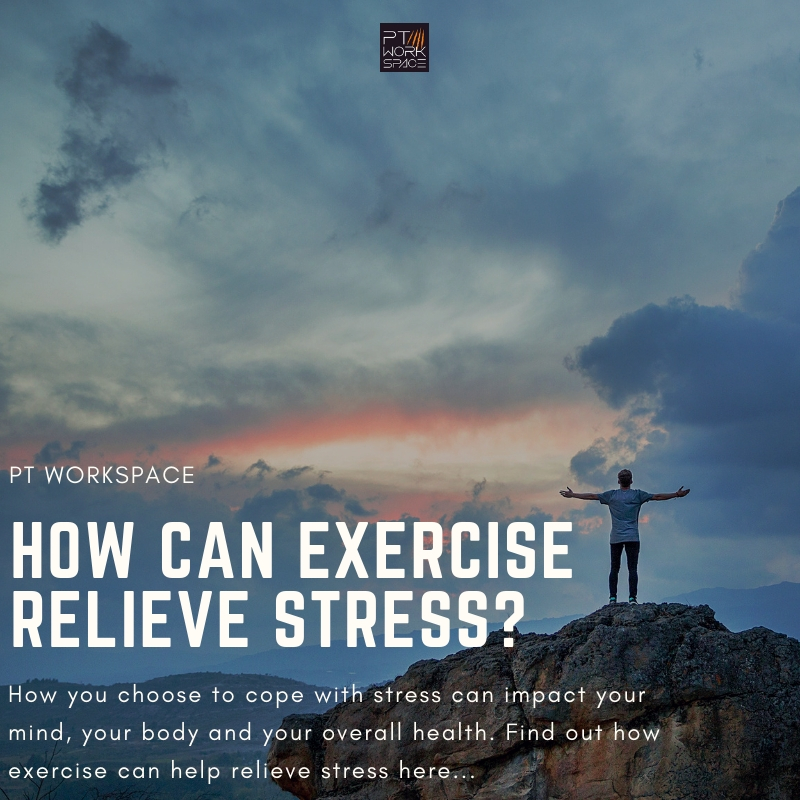Stress like mental health is not something we should shy away from, by talking about it and addressing stress head on, we can find different coping mechanisms for carrying it. Sometimes stress cannot be avoided, such as the loss of a job or the passing of a family member. These sorts of situations are ones which we rarely have the power to alter. However, how you choose to cope with the stress of these traumatic events, can impact the amount of stress it puts on your mind and body. Exercise will not magic your problems away, but it can give you tools in which to handle stress and here’s why…
When stressed your body releases stress hormones, such as cortisol and adrenaline, this in turn puts your mind and body into survival mode (fight or flight). Your heart pounds faster, the muscles tighten, higher blood pressure and sharper senses. As well as impacting your feelings, senses and behaviour. Stress if left unchecked for long periods, has been linked to problems with the heart and vessels, as well as obesity and diabetes. So as you can see nothing good comes from stress and yet most of us will carry stress day to day and never address it. Here are some signs you might be stressed from the NHS.
How you may feel emotionally
- overwhelmed
- irritable and “wound up”
- anxious or fearful
- lacking in self-esteem
How you may feel mentally
- racing thoughts
- constant worrying
- difficulty concentrating
- difficulty making decisions
How you may feel physically
- headaches
- muscle tension or pain
- dizziness
- sleep problems
- feeling tired all the time
- eating too much or too little
How you may behave
- drinking or smoking more
- snapping at people
- avoiding things or people you are having problems with
Visit the Mind website for more signs of stress
Even though exercise stresses your body releasing cortisol, by doing exercise on a regular basis you enable the hormones to decrease the amount of cortisol released in response to stressors. The more you train, the fitter you will be, and your body will become more efficient at managing the physical stress. Exercise has been proven to:
- Reduce stress
- Ward off anxiety and feelings of depression
- Boost self-esteem
- Improve sleep
To quote Harvard Medical School
“Many forms of exercise reduce stress directly, and by preventing bodily illness, exercise has extra benefits for the mind. Regular physical activity will lower your blood pressure, improve your cholesterol, and reduce your blood sugar. Exercise cuts the risk of heart attack, stroke, diabetes, colon and breast cancers, osteoporosis and fractures, obesity, depression, and even dementia (memory loss). Exercise slows the aging process, increases energy, and prolongs life.”
https://www.health.harvard.edu/staying-healthy/exercising-to-relax
Thanks for Reading
PT Workspace Team
P.S If you are interested in finding out about personal training or studio hire at PT Workspace you can contact info@ptwporkspace.co.uk. In addition why not take a look at some of the personal trainers who already work with us here.
